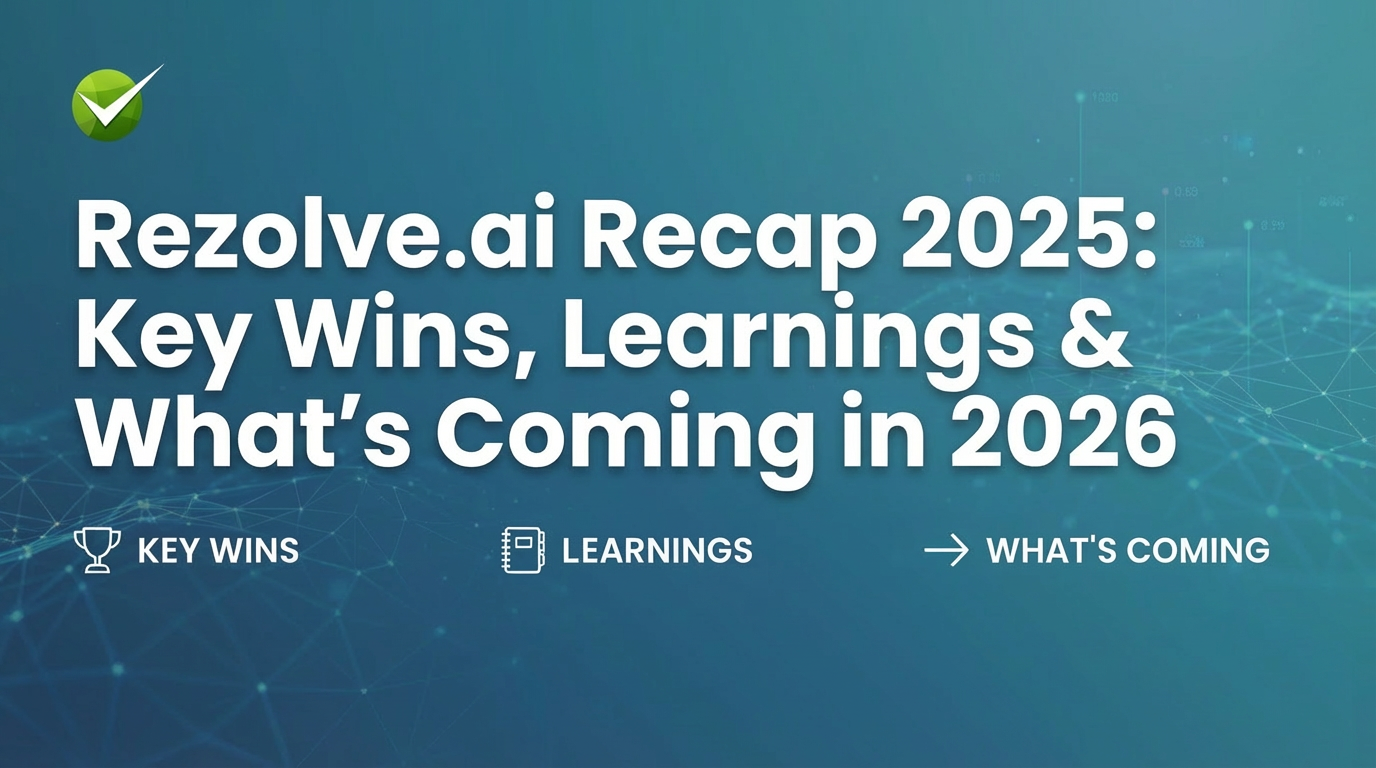The growing complexity of enterprise environments has created a challenge that every business faces—how to quickly and accurately locate relevant information within a sea of data. This is where enterprise search comes into play, enabling users to retrieve information from across an organization’s vast internal data sources, whether structured or unstructured. These sources could include SharePoint, OneDrive, emails, intranet websites, enterprise applications, and more.
The introduction of Generative AI (GenAI) into the realm of enterprise search is revolutionizing how employees access information. Instead of pointing employees to potential sources, GenAI, especially in conjunction with large language models (LLMs) and retrieval-augmented generation (RAG) models, can provide exact answers to specific questions. When combined with IT Service Management (ITSM), this powerful technology creates a seamless ecosystem where employees can access critical information and resolve issues in real-time. In this blog, we’ll explore how enterprise search and ITSM can work together to improve operational efficiency and productivity.
Why Enterprise Search Matters in Today’s Organizations?
In most organizations, knowledge accessibility remains one of the biggest obstacles for employees. The challenge of not being able to find the right information in a timely manner can hinder productivity and lead to frustration. This lack of access to knowledge is especially problematic in large enterprises where information is scattered across multiple systems, applications, and databases.
Let’s consider some everyday scenarios where enterprise search could save hours of employee time:
- You’re a Tableau developer working on a new dashboard for your business users but can’t find documentation for a new database, nor do you know how to request access to it.
- You’re a newly hired salesperson trying to learn the ropes, but you have no access to previous sales demos or any relevant training materials.
- You’re a contact center employee who must answer customer questions about a recently updated policy, but the folder containing it seems lost.
- You want to add your spouse to your health benefits but are unsure how to go about it, and the information is buried in your company’s internal systems.
These are just a few examples, but every employee across every function can recall similar situations. Whether it’s searching for HR policies, customer data, or project documentation, employees often waste time sifting through outdated or inaccessible resources, delaying their work and leading to inefficiencies. According to McKinsey, employees spend nearly 20% of their time—or one full day per week—searching for internal information or tracking down colleagues for answers. That translates into significant lost productivity.
Generative AI: Transforming Enterprise Search
It’s no surprise, then, that enterprise search powered by Generative AI has become a hot topic. Before GenAI, organizations typically used search tools like Elasticsearch, which, while powerful, often fell short in terms of adoption and usability. These earlier technologies could index data but struggled to provide precise answers. They pointed users to potential sources but rarely provided a definitive solution to the user’s query.
Employees want more than just a list of possible documents or data sources—they want exact answers to their specific questions. This is where Generative AI, LLMs, and RAG models excel. GenAI can synthesize information from various data sources, generating a direct, conversational response based on the employee’s query. Whether the data is in structured formats like databases or unstructured formats like emails and PDFs, GenAI can provide the information in a matter of seconds.
Many enterprise products have begun leveraging this technology to enhance their search capabilities, addressing the ever-growing demand for fast, reliable access to internal knowledge.
Functional Areas Where Enterprise Search Is Evolving
Let’s explore the various functional areas where enterprise search, fueled by GenAI, is already making waves or is likely to do so in the near future.
1. Standalone Enterprise Search Products Like MS Copilot
One of the most well-known standalone solutions for enterprise search is MS Copilot. Positioned as a personal productivity tool, MS Copilot integrates with SharePoint, OneDrive, and other Microsoft products to help employees search for documents, emails, and files across the organization’s ecosystem.
MS Copilot comes at a price—around $30 per user per month—and is designed to enhance personal productivity by providing users with easy access to their documents and data. While it’s effective for those who rely heavily on Microsoft’s suite of tools, its scope is somewhat limited to the Microsoft ecosystem. For organizations with more complex data environments, or those relying on non-Microsoft products, standalone solutions like Copilot may not offer the full range of features needed.
2. Enterprise Search Capabilities with HRIS Systems
Another area where enterprise search is gaining traction is within HRIS (Human Resource Information Systems) platforms. Companies like Workday are enhancing their products to incorporate enterprise search capabilities, enabling employees to quickly find information related to HR policies, payroll, benefits, and more. Given that HR systems often house sensitive and complex employee data, the integration of GenAI to power these searches is expected to grow rapidly.
Imagine being able to ask a GenAI-powered search engine, “How do I add my spouse to my health benefits?” and receiving an exact, step-by-step answer drawn from various HR documents. In the near future, it’s fair to assume that leading HRIS systems will integrate generative AI to further enhance these capabilities, ensuring employees have instant access to the HR-related information they need.
3. Enterprise Search Capabilities with CRM Systems
Customer Relationship Management (CRM) platforms like Salesforce and HubSpot are also embracing enterprise search. These platforms are central to an organization’s sales and marketing efforts, housing large volumes of customer data, communications, and sales documentation. As CRMs continue to evolve, incorporating GenAI-powered search will allow sales teams to quickly locate customer data, retrieve contracts, or pull up old email exchanges, improving their efficiency and customer engagement.
For instance, salespeople will soon be able to ask their CRM search tool for specific customer insights, such as “What was the last communication we had with XYZ company?” and receive detailed, conversational responses, eliminating the need to manually search through records.
4. Enterprise Search Capabilities with ITSM Systems
ITSM systems—the backbone of IT support—are also beginning to adopt enterprise search capabilities, though their progress has been somewhat slower. Solutions like ServiceNow have begun their GenAI journey, but many of these products remain technician-centric. The shift toward more advanced enterprise search capabilities in ITSM systems will require time, especially for products based on older architectures.
The ITSM space has a unique challenge: support needs to serve not only the IT staff but also the end-users who submit requests or tickets. GenAI has the potential to dramatically improve this process, providing employees with real-time answers to IT issues and helping technicians access the right information to solve complex problems. However, given the legacy infrastructure of many ITSM systems, it will take time for some vendors to catch up to the full potential of GenAI.
That said, several standalone GenAI products are emerging in this space, offering integrations with ITSM systems. These products provide advanced search capabilities that help employees and technicians access relevant knowledge faster, improving the overall efficiency of IT operations.
5. Enterprise Search Capabilities with Other Enterprise Applications
The future of enterprise search isn’t limited to a few select areas. With the rise of GenAI, virtually every enterprise application—from financial management tools to supply chain management systems—has the potential to integrate advanced search functionality. Whether it’s accessing transactional data, pulling up vendor contracts, or reviewing purchase orders, GenAI-powered enterprise search will enable users to quickly retrieve data across their entire business ecosystem.
The Question: What Is Your Enterprise Search Strategy?
As GenAI continues to reshape the landscape of enterprise search, the key question for businesses is this: What is your enterprise search strategy?
If your organization isn’t leveraging the latest in AI-driven search technology, you could be leaving significant value on the table. By embracing GenAI, you can provide employees with fast, accurate answers that allow them to work more efficiently and effectively. This is especially important in environments where time-sensitive decisions are made, such as IT, HR, and sales.
A powerful enterprise search strategy should focus on:
- Integration: Ensuring that your search tool can access and analyze data from all relevant systems and applications, not just a select few.
- User Experience: Making search easy and intuitive, allowing employees to get the answers they need without unnecessary friction.
- Advanced AI: Leveraging GenAI’s ability to generate precise, conversational responses, rather than simply pointing to potential data sources.
GenAI: The Future of Enterprise Search
Generative AI represents the latest generation of enterprise search solutions, and it’s already proving its value in terms of ROI. With GenAI, businesses can unlock new levels of efficiency, productivity, and innovation by providing employees with the tools they need to access knowledge in real-time.
Unlike traditional search tools, which often require users to sift through documents and data sources manually, GenAI-powered search generates exact answers based on the context of the question. This eliminates guesswork, reduces wasted time, and improves the overall employee experience.
By integrating GenAI into your enterprise search strategy, you can ensure that your organization is well-positioned to meet the demands of today’s fast-paced work environment.
Transform your enterprise search and accelerate your ROI with Rezolve.ai - we will tell you how in a demo.






.webp)




.jpg)

.png)








.png)